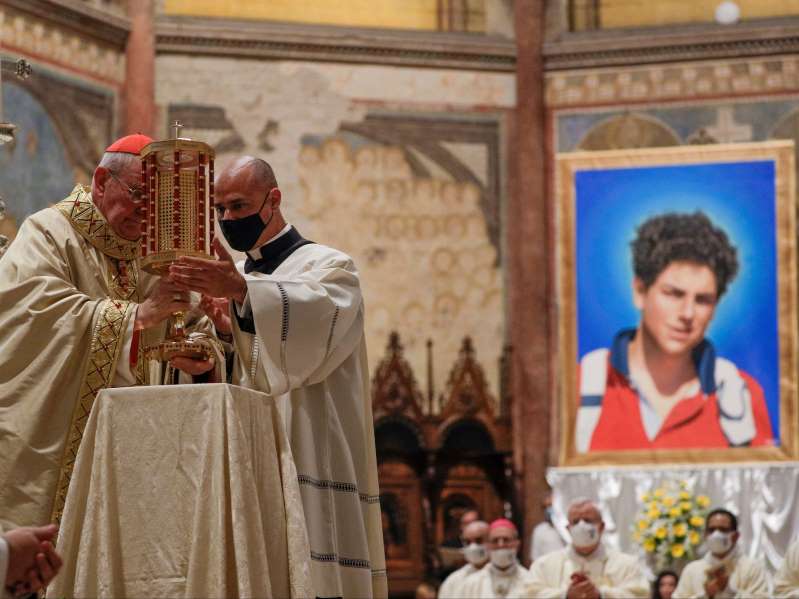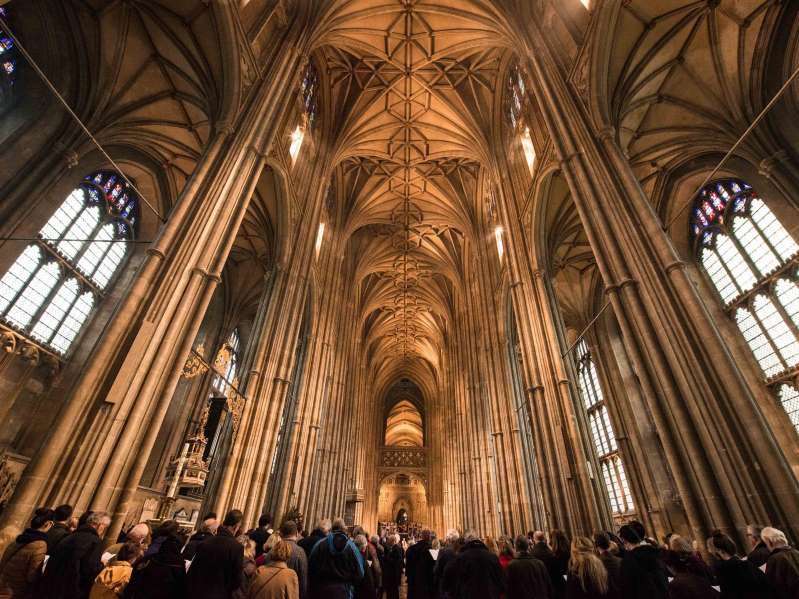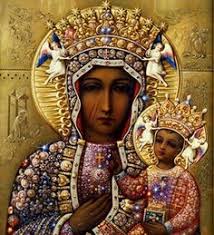Police appeal after woman raped outside church in south east London








Police appeal after woman raped outside church in south east London
Detectives are appealing for information after a woman was raped in south-east London.
Police were called to Liverpool Grove in Southwark just after 4am on Saturday following reports of the attack.
The incident is understood to have taken place at around 3am in the grounds of St Peter’s Church.
Following the assault, the victim sought help from people in a nearby house, and police were called.
Investigations are ongoing.
Detective Constable Jake Good, of the Metropolitan Police, said: “This was clearly a very serious incident and we are carrying out a number of enquiries to identify the person responsible.
“I would ask that anyone who saw anything suspicious in the area at around that time to please come forward.
“Any detail – no matter how small – could assist with our investigation.”
Anyone with information is asked to contact 101 quoting Cad 1207/10Oct.
Reference: Evening Standard: Harriet Brewis; 1 day ago
Carlo Acutis: London-born 15-year-old moves closer to becoming first millennial saint







Carlo Acutis: London-born 15-year-old moves closer to becoming first millennial saint
A London-born 15-year-old has moved one step closer to becoming the first millennial saint.
In a service on Saturday in the Italian town Assisi, where he died with leukaemia in 2006, Carlo Acutis became the youngest contemporary person to be beatified.
This honour means the Catholic Church recognises his ability to intervene on behalf of those who pray in his name, and sets him another step further on the path to sainthood.
Already touted as “the patron saint of the internet”, Acutis taught himself to code from a textbook as a young boy, running websites for Catholic organisations and creating an online catalogue of purported miracles.
And earlier this year, Pope Francis approved a miracle attributed to Acutis himself, supposedly carried out some seven years after his death.
The Church claims Acutis intervened from heaven in 2013 to save the life of a seven-year-old boy in Brazil, whose rare pancreatic disorder was purportedly healed after coming into contact with a piece of one of Actutis’s old T-shirts.
During the beatification ceremony in Assisi’s St Francis Basilica, a portrait of Acutis was slowly unveiled, revealing a smiling teen in a red polo shirt, his curly dark hair illuminated by a halo of light.
His body, clad in a tracksuit and trainers, has been on display for veneration in a sanctuary in the town, and his heart will be displayed in the basilica.

Cardinal Agostino Vallini kissed each of the boy's mask-wearing parents, Andrea Acutis and Antonia Salzano, after reading a proclamation decreed by Pope Francis.
“Carlo used the internet in service of the Gospel, to reach as many people as possible,” the cardinal said, adding that the teen saw the web “as a place to use with responsibility, without becoming enslaved”.
Born on 3 May 1991, Acutis moved to Milan as a three-year-old. Much to the surprise of his non-practicing parents, he soon showed an intense religious devotion and asked to be taken to visit the city’s churches, his mother told the Corriere della Sera newspaper.
By the age of seven, he asked to receive the sacrament of Holy Communion, and was granted an exception to the customary age requirement.
"There was in him a natural predisposition for the sacred," said his mother, who took up theological studies in order to better answer her son’s questions, reigniting her own faith. “It is a path that continues. I hope to at least wind up in purgatory,” Ms Acutis said.
His beatification puts him on a similar path to two Portuguese shepherd children, who had lived in the early 1900s and were proclaimed Catholic saints in 2017.
While sainthood typically requires the approval of at least two miracles, Pope Francis has been known to waive this requirement.
However, his mother believes he has already performed the requisite amount.
"I was sure he was already a saint while alive. He healed a woman from cancer, praying to the Madonna of Pompeii," Ms Acutis told Corriere.
“Before he left us, I told him: ‘If in heaven you find our four-legged friends, look for Billy’, my childhood dog that he never knew,” the mother added.
One day she reportedly received a call from an aunt who was unaware of their pact, who Ms Acutis said had told her: “I saw Carlo in a dream tonight. He was holding Billy in his arms.”
Reference: Independent: Andy Gregory: 1 day ago
Church of England forgave paedophiles and allowed them to continue working with children, inquiry finds







Church of England forgave paedophiles and allowed them to continue working with children, inquiry finds
The Church of England forgave paedophiles after they expressed remorse and allowed them to carry on working instead of protecting children, a report has found. The Independent Inquiry into Child Sexual Abuse (IICSA) said that between the 1940s and 2018, 390 clergy members or people in positions of trust were convicted of child sex offences. “The culture of the Church of England facilitated it becoming a place where abusers could hide,” said a report released on Tuesday.
“Deference to the authority of the Church and to individual priests, taboos surrounding discussion of sexuality and an environment where alleged perpetrators were treated more supportively than victims presented barriers to disclosure that many victims could not overcome.” IICSA said that many members of the church regard forgiveness “as the appropriate response to any admission of wrongdoing”.
The report cited the case of Timothy Storey, who was permitted to continue working with children after expressing “remorse for everything he had done wrong”. He is currently serving 15 years in prison for several offences against children, including rape. “Some religious leaders use ‘forgiveness’ to justify a failure to respond appropriately to allegations,” the report said.
“Perpetrators who repent must be willing to face the legal consequences of their sin and should be prevented from accessing environments in which re-offending could occur.” Evidence given to the inquiry suggested that some victims may have been pressured by church workers to forgive their abuser, causing further harm and potentially bringing them back into contact with the person.

“They may condemn themselves and believe they are condemned by others if they are not willing, or able to forgive,” the report said. It also raised concern about the seal of the confessional, which creates a “duty of absolute confidentiality” on the information disclosed. Diocesan safeguarding advisers said it was rare for someone to admit to child sexual abuse during confession, but survivor groups allege that numerous allegations have not been passed to authorities.
IICSA found that where formal complaints were made, alleged perpetrators were given more support by the Church of England than their victims, compounding their trauma. Storey received ongoing care and supervision from the Church throughout two court cases, the report said, while some of his victims “did not feel they were believed and felt on their own with no support”.
Allegations of him abusing girls as young as 13 he met through the Church dated back to 2007, when he was employed as a youth worker in the Diocese of London and for a missionary organisation. In 2009, he admitted to a senior vicar that he had sex with a 16-year-old girl whom he met through a residential Christian event, but the vicar told others that he “was basically a good man who could be an effective priest”.
After Storey was convicted for unrelated grooming offences in 2014, several other victims came forward and in 2016 he was jailed for three counts of rape and another sexual assault against girls he met through the Diocese of London.
IICSA’s report cited other cases where the Church’s response was “entirely inappropriate”. It said that after reverend Ian Hughes was convicted in 2014 for downloading 8,000 indecent images of children, including 800 in the most serious category, Bishop Peter Forster suggested he had been “misled into viewing child pornography”.
The inquiry found that public support had been given to some offending clergymen, including former bishop Peter Ball, who manipulated young men for his own sexual gratification in 2015. Lord George Carey, the former Archbishop of Canterbury, “simply could not believe the allegations against Ball ... and was outspoken in his support of his bishop”, the report said.
It cited “tribalism” as a key issue of concern in the Church of England, creating disproportionate loyalty that overrode child protection. “Perpetrators were defended by their peers, who also sought to reintegrate them into Church life without consideration of the welfare or protection of children and vulnerable adults,” IICSA said.
Other concerns highlighted were the power vested in the clergy, a culture of “deference” and lack of accountability to independent agencies. The inquiry warned of naivety among parishioners that the clergy’s moral code made sexual abuse unlikely or impossible, meaning reports were dismissed without investigation.
“The primary concern of many senior clergy was to uphold the Church’s reputation, which was prioritised over victims and survivors,” it added. “Senior clergy often declined to report allegations to statutory agencies, preferring to manage those accused internally for as long as possible. This hindered criminal investigations and enabled some abusers to escape justice.”
IICSA said a “culture of fear and secrecy within the Church about sexuality” had also fostered a climate of abuse, because paedophilia was wrongly conflated with homosexuality. The report, which contains eight recommendations, said that while improvements in child protection practice have been made there remains a long way to go to rebuild victims’ trust.
Professor Alexis Jay, chair of the inquiry said: “Over many decades, the Church of England failed to protect children and young people from sexual abusers. “If real and lasting changes are to be made, it’s vital that the Church improves the way it responds to allegations from victims and survivors, and provides proper support for those victims over time.
“The panel and I hope that this report and its recommendations will support these changes to ensure these failures never happen again.” A spokesperson for the Church of England said it was committed to introducing greater independent oversight and sharing safeguarding information externally.
It said a motion passed at the February sessions of the General Synod committed to a more victim-centred approach including arrangements for redress. “The report makes shocking reading and while apologies will never take away the effects of abuse on victims and survivors, we today want to express our shame about the events that have made those apologies necessary,” a statement added. "The whole Church must learn lessons from this Inquiry."
Reference: The In dependent: Lizzie Dearden 6 hrs ago
Pope: Market capitalism has failed in pandemic, needs reform







Pope: Market capitalism has failed in pandemic, needs reform
ROME (AP) — Pope Francis says the coronavirus pandemic has proven that the “magic theories” of market capitalism have failed and that the world needs a new type of politics that promotes dialogue and solidarity and rejects war at all costs.
Francis on Sunday laid out his vision for a post-COVID world by uniting the core elements of his social teachings into a new encyclical aimed at inspiring a revived sense of the human family. “Fratelli Tutti” (Brothers All) was released on the feast day of his namesake, the peace-loving St. Francis of Assisi.
The document draws its inspiration from the teachings of St. Francis and the pope’s previous preaching on the injustices of the global economy and its destruction of the planet and pairs them with his call for greater human solidarity to confront the “dark clouds over a closed world."
In the encyclical, Francis rejected even the Catholic Church’s own doctrine justifying war as a means of legitimate defense, saying it had been too broadly applied over the centuries and was no longer viable.
“It is very difficult nowadays to invoke the rational criteria elaborated in earlier centuries to speak of the possibility of a ‘just war,’" Francis wrote in the most controversial new element of the encyclical.
Francis had started writing the encyclical, the third of his pontificate, before the coronavirus struck and its bleak diagnosis of a human family falling apart goes far beyond the problems posed by the outbreak. He said the pandemic, however, had confirmed his belief that current political and economic institutions must be reformed to address the legitimate needs of the people most harmed by the coronavirus.
“Aside from the differing ways that various countries responded to the crisis, their inability to work together became quite evident,” Francis wrote. “Anyone who thinks that the only lesson to be learned was the need to improve what we were already doing, or to refine existing systems and regulations, is denying reality."
He cited the grave loss of millions of jobs as a result of the virus as evidence of the need for politicians to listen to popular movements, unions and marginalized groups and to craft more just social and economic policies.
“The fragility of world systems in the face of the pandemic has demonstrated that not everything can be resolved by market freedom,” he wrote. “It is imperative to have a proactive economic policy directed at ‘promoting an economy that favours productive diversity and business creativity’ and makes it possible for jobs to be created, and not cut.”
Francis also rejected “trickle-down” economic theory as he did in the first major mission statement of his papacy, the 2013 Evangelii Gaudium, (The Joy of the Gospel), saying it simply doesn’t achieve what it claims.
“Neo-liberalism simply reproduces itself by resorting to magic theories of ‘spillover’ or ‘trickle’ — without using the name — as the only solution to societal problems,” he wrote. “There is little appreciation of the fact that the alleged ‘spillover’ does not resolve the inequality that gives rise to new forms of violence threatening the fabric of society.”
Francis’ English-language biographer, Austen Ivereigh, said with its two key predecessors, the new encyclical amounts to the final part of a triptych of papal teachings and may well be the last of the pontificate.
“There is little doubt that these three documents ... will be considered the teaching backbone of the Francis era,” Ivereigh wrote in Commonweal magazine.
Francis made clear the text had wide circulation, printing the encyclical in the Vatican newspaper L'Osservatore Romano and distributing it free in St. Peter's Square on Sunday to mark the resumption of printed editions following a hiatus during the COVID-19 lockdown.
Much of the new encyclical repeats Francis’ well-known preaching about the need to welcome and value migrants and his rejection of the nationalistic, isolationist policies of many of today’s political leaders.
He dedicated an entire chapter to the parable of the Good Samaritan, saying its lesson of charity, kindness and looking out for strangers was “the basic decision we need to make in order to rebuild our wounded world.”
“That a theme so ancient is spoken with such urgency now is because Pope Francis fears a detachment from the view that we are all really responsible for all, all related to all, all entitled to a just share of what has been given for the good of all," said Anna Rowlands, professor of Catholic social thought at Britain's University of Durham, who was on hand to present the encyclical Sunday at the Vatican.
Francis enshrined in the encyclical his previous rejection of both the nuclear arms race and the death penalty, which he said was “inadmissible” in all cases.
Francis' call for greater “human fraternity," particularly to promote peace, is derived from his 2019 joint appeal with the grand imam of Egypt’s Al-Azhar, the revered 1,000-year-old seat of Sunni Islam. Their “Human Fraternity” document established the relationship between Catholics and Muslims as brothers, with a common mission to promote peace.
The fact the he has now integrated that Catholic-Muslim document into an encyclical is significant, given Francis' conservative critics had already blasted the “Human Fraternity" document as heretical, given it stated that God had willed the “pluralism and diversity of religions."
Vatican encyclicals are the most authoritative form of papal teaching and they traditionally take their titles from the first two words of the document. In this case, “Fratelli Tutti” is a quote from the “Admonitions,” the guidelines penned by St. Francis in the 13th century.
The title of the encyclical had sparked controversy in the English-speaking world, with critics noting that a straight translation of the word “fratelli” (brothers) excludes women. The Vatican has insisted that the plural form of the word “fratelli” is gender-inclusive.
Francis’ decision to sign the document in Assisi, where he travelled on Saturday, and release it on the saint’s feast day is yet further evidence of the outsized influence St. Francis has had on the papacy of the Jesuit pope.
Francis is the first pope to name himself after the mendicant friar, who renounced a wealthy, dissolute lifestyle to embrace a life of poverty and service to the poor.
By NICOLE WINFIELD, Associated Press 1 day ago
Articles-Latest
- Koran burning conviction sparks fury as blasphemy law 'returns to UK'
- Robert Francis Prevost - Pope Leo XIV
- Pope Francis' death follows recent health challenges. Here's what we know about how he died.
- Easter April 2025 - international Celebrations
- The Rule of the twelve psalms -Worthy is the Lamb
- Religion in Africa Before Christianity and Islam
- 6 The Origin of Yahweh
- Dumo Di Milano
- What Did the Crow Tribe Believe In: Discover The Beliefs!
- 7 Reasons Historic Christianity Rejects the Book of Enoch
- 8 Breathtaking Mountain Monasteries Around the World
- Ethiopian Bible is oldest and most complete on earth
- Muhammad Muhammad was a prophet and founder of Islam.
- World Day of the Poor – SVP Christmas Campaign 2024
- Pope Francis to open 5 sacred portals on Christmas Eve — for a ritual that’s never been done before
- The 144,000 in Revelation
- Over 73 dead bodies 'used for meditation', 600 crocs in a pond, found in two Thai temples
- Occultism: Western Occult Tradition
- What is a Mudra
- Blood Sacrifices: Ancient Rituals of Life and Death
Articles-Most Read
- Home
- Let There Be Light
- Plants that feel and Speak
- The Singing Forest
- The Singing Forest-2
- Introduction
- Meditation
- Using Essential Oils for Spiritual Connection
- Heaven Scent
- Plants that Feel and Speak-2
- Purification
- Making the Spiritual Connection
- Anointing
- Essential Oils: The unseen Energies
- The Sanctity of Plants
- The Aroma Of Worship-Foreward
- The Aroma Of Worship - Introduction
- Methods Of Use
- Spiritual Blending
- Handling and Storage






